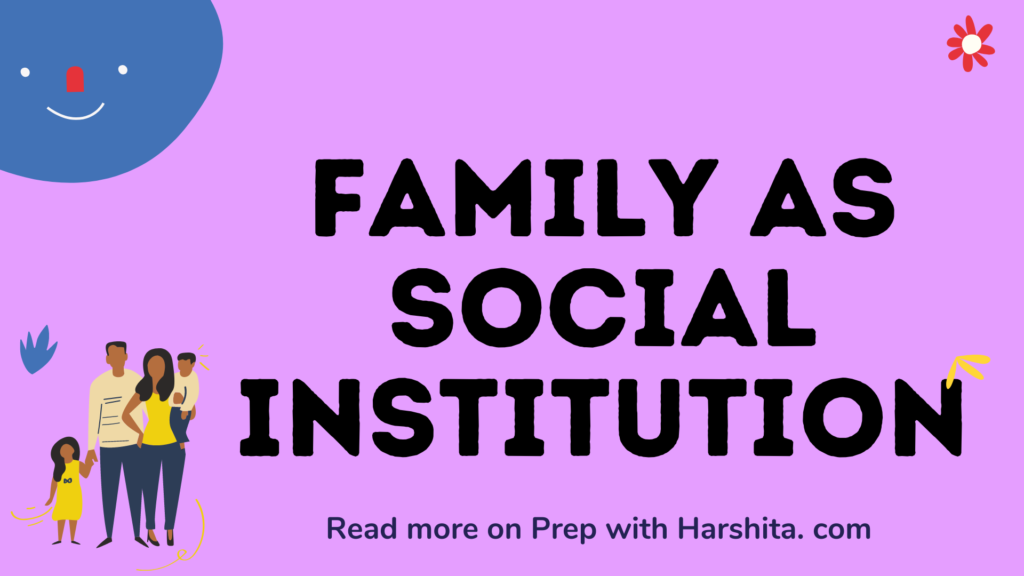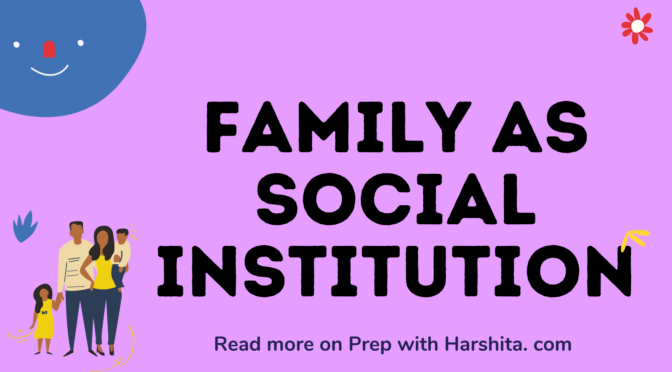The family is a vital social institution that plays a central role in society. It is considered the basic unit of social organization and serves several important functions.
Here’s a detailed explanation of the family as a social institution:
- Reproduction and Procreation: The family serves as the primary institution for reproduction and procreation. It provides the structure for biological parents to conceive, give birth to, and raise children. Families ensure the continuity of generations by passing on genetic traits, cultural values, and social norms to future generations.
- Socialization: One of the most critical functions of the family is socialization. Within the family, children acquire the knowledge, skills, attitudes, and behaviors necessary for their effective integration into society. Family members serve as primary agents of socialization, transmitting cultural values, language, customs, and norms to children.
- Emotional Support and Nurturing: Families provide emotional support, care, and nurturing to their members. They offer a sense of belonging, love, and emotional security, fostering the emotional well-being of individuals. Family relationships provide a foundation for social and emotional development, helping individuals develop trust, empathy, and interpersonal skills.
- Formation of Identity: The family significantly influences the formation of individual and group identities. It shapes individuals’ sense of self, personal values, beliefs, and cultural identity. Family members provide role models, and interactions within the family contribute to the development of self-concept and self-esteem.
- Economic Cooperation: Families often serve as economic units, collaborating in various economic activities such as sharing financial resources, providing for basic needs, and supporting each other economically. In some cases, families may run family businesses or engage in collective economic endeavors.
- Care and Support in Times of Need: Families provide care and support during times of illness, disability, or other challenging circumstances. Family members often take on caregiving roles, offering physical and emotional assistance to those in need. The family serves as a safety net, providing social support and resources in times of crisis.
- Transmission of Cultural Heritage: Families are responsible for transmitting cultural heritage, traditions, and values across generations. They pass on knowledge about religious beliefs, customs, language, and cultural practices, contributing to cultural continuity and preservation.
- Gender Roles and Socialization: Families play a significant role in the socialization of gender roles and expectations. They can reinforce traditional gender norms and stereotypes or challenge and redefine them. Family dynamics and interactions shape individuals’ understanding of gender roles, influencing their attitudes and behaviors related to gender.
It is important to note that family structures and functions vary across cultures and societies. While the traditional nuclear family consisting of a married couple and their children is commonly recognized, other forms such as single-parent families, extended families, same-sex parent families, and chosen families exist and contribute to the diverse fabric of society.
Also Read : Transmission of Parental Expectations and Values

Also Visit : Prep with Harshita

